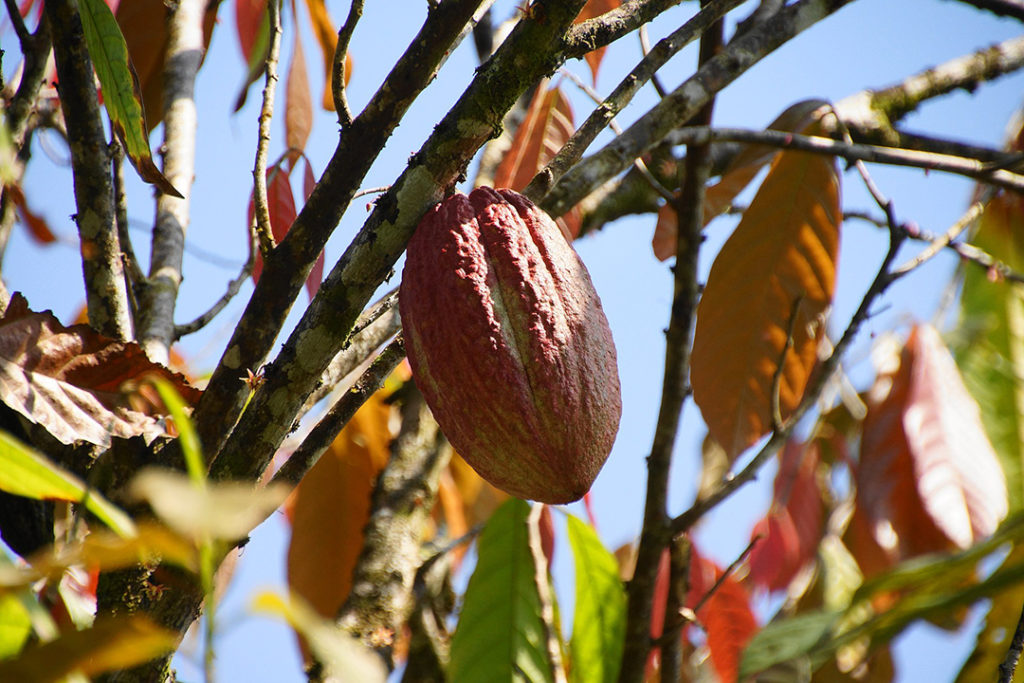
Ghana
Cocoa Tree
Theobroma cacao

General Description / Cultural Significance
The Cocoa tree, Theobroma cacao, represents the wealth of the country of Ghana. It is one of the country’s major exports, and is seen on their coat of arms. Ghana was once the world’s leading producer of cocoa, first exporting it in the late 1800s. Today the cocoa tree is harvested from October to January, a job that employs hundreds of thousands of farmers. Its impact economically for the people who live in Ghana has been significant. Ghanaians themselves are not major consumers of cocoa, but the crop is what allows them to make a living.
Unfortunately, farmers in the country are still very poor and are trapped in a system of selling raw material internationally without making a large enough profit, while most of the market value of chocolate is added once the product is refined. Not only is this a fact that has earned major chocolate manufacturers criticism, but there have been huge child labor issues associated with chocolate production for companies like Nestle and Hershey. Ghanaians are in the midst of attempting to leverage their power as cocoa producers and raise prices for their raw materials, a feat that when facing big industry, will prove very challenging.
Cocoa itself is used in many beverages, and to make chocolate, which comes from cocoa seeds. When dried and fermented, the seeds are known as cocoa beans. The beans contain caffeine and are known to be a stimulant. It has been suggested that medically Theobroma cacao lowers blood pressure, reduces risk of diabetes, reduces risk of heart disease, reduces inflammation, and is an excellent source of nutrition. Cocoa butter also smooths the skin. In recent years cocoa has been identified as a superfood because of its high flavonoid levels that benefit health in many ways, and this has raised its value.
Climate Change/Conservation Status
Large areas of forest in Ghana have been lost to the cultivation of cocoa trees. Unfortunately, with rising demand for chocolate worldwide, the expansion of tree farming into land where soil isn’t depleted has required major forest clearing. This is unsustainable and threatens the chocolate industry itself. Rainfall and temperatures in Ghana are exactly ideal for cocoa tree growth, and so the industry also is unable to relocate elsewhere. Clearing virgin farmland and using large amounts of pesticides to optimize harvests are also common farming practices that can end up having a detrimental effect on the biodiversity in the area.
In addition to this, rapidly rising temperatures in the Ghanaian rainforest land will ultimately mean that chocolate will be unable to grow by the year 2050. Scientific engineering on the part of major corporations like Mars are urgently seeking ways in which to allow chocolate to grow in drier and hotter parts of the world. It is far too likely that chocolate will be extinct within the next half a century, a shocking loss as far as biodiversity, and a tremendous loss to the country of Ghana as an export.
Alternate Names
Chocolate
Cocoa

